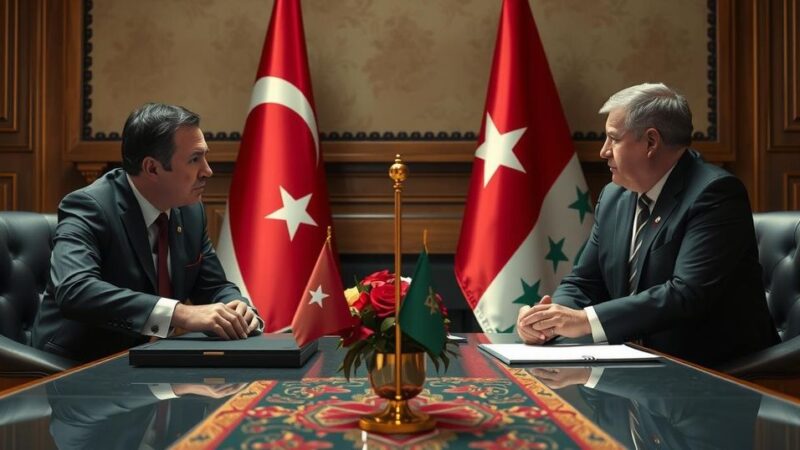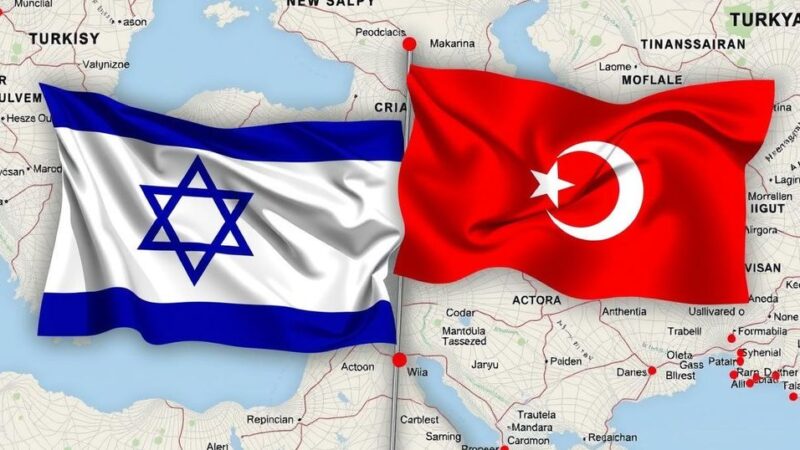U.S., Turkey, and Arab officials are advocating for a peaceful transition in Syria through discussions held in Jordan. Key points include the emphasis on an inclusive government and the need to prevent chaos similar to Libya’s. Direct communications with the rebel group HTS suggest a complex engagement in the ongoing conflict as external powers navigate the intricacies of Syrian politics.
In a significant diplomatic effort, officials from the United States, Turkey, and several Arab nations have expressed their commitment to facilitating a peaceful transition in Syria. During a press conference held in Aqaba, Jordan, Jordanian Foreign Minister Ayman Safadi emphasized the regional desire to prevent further chaos in Syria. U.S. Secretary of State Antony Blinken confirmed that direct communications have been established with the rebel group Hayat Tahrir al-Sham (HTS), indicating a complex engagement amid the ongoing conflict.
Subsequently, a joint statement called for the establishment of an inclusive Syrian government that acknowledges minority rights while denying any territorial base for terrorist organizations. This aligns with the urgent discussions following the recent upheavals within Syria, which highlight the importance of governance that accurately reflects the Syrian populace. Iraqi Foreign Minister Fuad Hussein articulated shared regional concerns regarding Syria’s future stability, drawing parallels to the aftermath of Libya’s political collapse.
Turkish Foreign Minister Hakan Fidan asserted the necessity of preserving and reforming existing Syrian institutions to avert exploitation by terrorist factions during the transition phase. “Never allow terrorism to take advantage of the transition period. And we have to coordinate our efforts and learn from the mistakes of the past,” Fidan noted, emphasizing the need for proactive measures in light of historical challenges.
Although HTS has signaled intentions for an inclusive governmental approach, skepticism remains regarding its commitment due to its extremist origins. Secretary Blinken acknowledged ongoing U.S. contact with HTS, particularly regarding the unresolved case of missing American journalist Austin Tice, despite the group’s continued classification as a terrorist organization.
Notably absent from the Jordanian discussions were representatives from the Syrian government, as well as pivotal supporters of President Bashar al-Assad: Iran and Russia. The absence of these parties underscores the complicated dynamics influencing any potential resolution, as there is a pressing need for cohesive efforts not only internally but also from external powers to foster hope for the Syrian populace in light of recent calls for freedom.
The ongoing Syrian conflict, which erupted in 2011, has drawn international attention and intervention from various countries. As a result, the region has witnessed a multitude of factions and foreign interests vying for influence. Recent talks involving U.S., Turkish, and Arab officials symbolize a collective acknowledgment of the need for a political solution aimed at restoring peace and governance in Syria, which has been marred by years of violence, humanitarian crises, and political instability. The call for an inclusive government signals a desire for stability and representation for all ethnic and religious groups within the country.
The diplomatic engagement among U.S., Turkish, and Arab officials marks a critical step toward a peaceful resolution in Syria. Their collective insistence on inclusivity and governance reform highlights the urgent need to avoid sectarian divisions and potential chaos. Continued communication with armed groups like HTS suggests a cautious approach to ensure that the transition benefits all Syrians. However, the absence of the Assad regime’s allies at these talks casts uncertainty on future endeavors, indicating the need for a unified international effort to genuinely support the Syrian populace.
Original Source: www.bbc.co.uk







